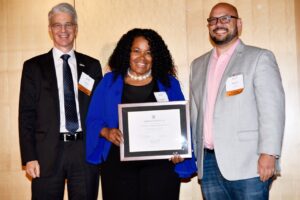
Teaching is a timeless job. One can safely agree that a teacher will always be needed at any time in human history – there’s a universe of things to learn, after all. We’ve provided aspiring lecturers, professors, or elementary educators, with a very simple-to-follow guide on starting on this path.
On that note, for those on their way to applying to a university to get the necessary degree to become a teacher, we’ve got a powerful suggestion for you. Admission essays are the keys to your golden opportunity, so don’t waste it by turning in a mediocre essay.
Studyfy can help you turn in ‘the’ admission essay since the website has seasoned and professional writers ready to lend their expert help. Simply go to Studyfy, click the order admission essay button, and instantly connect with your professional guide and writer. Invest in your success – today.
Moving along, here’s our guide for those on a need-to-know basis.
Overview: Things To Consider
For job seekers, professionals, and those who want to change their career path to teaching, let’s look over a few noteworthy things before paving your way to becoming a teacher:
- The majority of high-level teachers, such as university professors, have a bachelor’s degree or a master’s degree.
- The majority of teachers worldwide have some sort of degree, according to statistics found online.
- It’s possible to be a teacher without having obtained a degree. Some teachers only had High school diplomas or Associate degrees.
- Typically, experience is needed before becoming a full-fledged teacher. Becoming a substitute teacher (teacher’s associate) or getting an internship is the best choice.
- One of the most evident advantages of being on this career path in 2022 is that the traditional ways of becoming one are not the only ways to achieve status. We will dive into all the steps one can take to become one.
1. Becoming a Teacher Without A Formal Teaching Degree
For those with a bachelor’s degree featuring any study, it’s possible to enroll yourself in an alternative certification program in the U.S. This is because most states provide job seekers the opportunity to learn through these alternative teacher certification programs.
The only catch is that a lot of paperwork needs to be done; each state has its own different requirements to get the certification. We encourage our aspiring readers to do their research with respect to where they currently reside and look up the red tape you’ll need to take care of.
2. Fundamentals For Different Scenarios
For those who are curious as to where to start, according to their varying circumstances, here are some examples:
- For those who want to teach in a public school setting, either for primary education or high-school level education, a teaching license is required.
- For those who have an associate’s degree, becoming a full-fledged teacher might not be possible right away. However, you can start by becoming an assistant or a substitute.
- For those who did not major in education or had no experience as a teacher, the best way to earn credibility is to score some substitute teaching gigs.
- Kindergarten to twelfth-grade teachers (the full-fledged ones) usually need a four-year bachelor’s under their belt.
Depending on where you are and which academic level you want to teach, consider what’s been stated above for clarity on the fundamentals.
3. Educator Preparation Programs

For aspirant educators, completing a state-approved educator preparation program, or EPP for short, is the step required to gain a certificate. Some states allow aspirants to enroll in a program while they’re still in college, and there are even programs for those who aren’t in college and who are working.
EPPs help and provide the tools needed to become a full-fledged educator and to know what needs to be done in the classroom.
4. Choosing The Subject
For the most part, it’s a wise decision to head over to the state department of education to inform yourself of the list of subjects and grade levels open to your certificate. At this point, choose a subject that speaks to you. It’s essential to teach a subject that comes naturally to you and not force yourself to choose one that you’re not good at.
5. Last Step: The Finalization Process
For those who manage to complete their program, the next step is to apply to their respective state education agency to make it all official. Usually, aspiring educators need to give them proof of degree, test scores, and the EPP. They will also normally do a background check that needs to be passed.
We encourage our readers to research any other additional prerequisites that their state might have.
6. Bonus Point: Online Alternatives
For those interested in teaching English, it’s good to know that it is very in demand in many countries around the globe. China, Europe, and countries in Africa all need English teachers, and being one is a popular alternative for many aspirants.
No formal degree is needed to become an online English teacher, just a high school diploma. The basic steps that are required in order to get on this bandwagon are:
- Firstly, is to find a credible and good TEFL certification program such as The TEFl Academy. This is the certification needed to teach English to foreigners. The big pro: it can all be done online, even the teaching part.
- Secondly, you’ll need to complete the certification and get the paper.
- Thirdly, the certified teachers can collaborate with the TEFL program to find their first students and jobs either online or offline. In some cases, it’s entirely up to the job seeker to find their own gigs, but since it’s in-demand labor, finding one won’t be too hard.
7. Income Expectations
Salaries can vary according to your state, and of course, online Salary Guides may be different as well. However, the median salary is around $61,600. This is according to the Bureau of Labor Statistics.
Median salaries aren’t accurate references for newcomer salaries, so for those who are just starting, expect your salary figures to be lower than this. Unless, of course, you’ve landed yourself the gig of a lifetime.
Final Thoughts
Becoming a teacher is fortunately much more accessible than some other professions. For those who are good at communication, are team-spirited, and have an innate passion for helping the youth learn, this might be the ideal path to follow.






